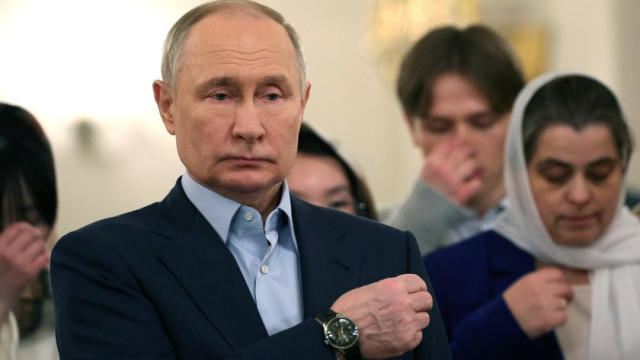Following Russia's full-fledged invasion of Ukraine in February 2022, Western nations seeking to safeguard the Ukrainian people and oppose Moscow's aggression started a campaign of moral and practical assistance for Ukraine.
Furthermore, enterprises, both state-owned and private, were urged to leave and discontinue commerce with Russia. Many have cooperated, and repercussions in industries like energy, banking, and technology have been harsh and destructive.
The isolation affected Russia, and many of its inhabitants departed the nation. Moscow is attempting to make up for this loss by making it easier for inhabitants of Kazakhstan, Belarus, and Moldova to get Russian citizenship, notably by reducing the requirement that they be familiar with Russian history and legislation.
Many people in the West saw Ukraine as a buffer zone between Europe and Russia in the months after the full-scale invasion. However, after publicly and uncompromisingly announcing their support for Kyiv, several European nations shifted to a more security-oriented stance, placing the Ukrainian people's difficulties in the background. Even the early warmth for Ukrainian migrants diminished with time.
We are now in the so-called third phase, during which certain European nations' willingness to trade with Russia has become obvious.
Major European economies are secretly resuming commercial collaboration with Moscow, circumventing sanctions to benefit from the free market. They do this by partnering with countries in the South Caucasus and Central Asia.
Data supplied by Robin Brooks, head economist at the Institute of International Finance, show that nations in the area, particularly Kyrgyzstan, operate as conduits for Europe to retain economic relations with Russia.
According to the research, German shipments of automobiles and auto components to Kyrgyzstan surged by 5,500% in 2023, while those to Kazakhstan soared by 720%, Armenia by 450%, and Georgia by 340%.
The impacted nations' commerce with Russia also increased. According to statistics from the Central Asian Bureau of Analytical Reports, Kazakh enterprises shipped electronic equipment to Russia worth around 550 million euros between January and October 2022, an increase of 18 times over the same period in 2021.
"Our results should not be interpreted as obvious violations of export controls, as we are only looking at summary export data, which does not shed light on what goods are being exported," Brooks said. "Unprecedented boom in trade with Central Asia raises important questions." He demanded an extensive probe into the situation.
There are numerous reasons for these countries' actions. They rely on Russia for the majority of their energy and do not want to jeopardize their energy security. Furthermore, they have long-standing commercial links, and any interruption over Ukraine may be disastrous.
Another motive is a desire to exploit the market vacuum left by nations that have broken relations with Russia. They are already planning for the post-war future and securing a market presence.
Concerns continue about Western nations' seriousness over Ukraine. Nobody knows how effective or extensive the punishments are./BGNES
Mehmet Fatih Oztarsu, European Policy Analysis Center




.jpeg)


